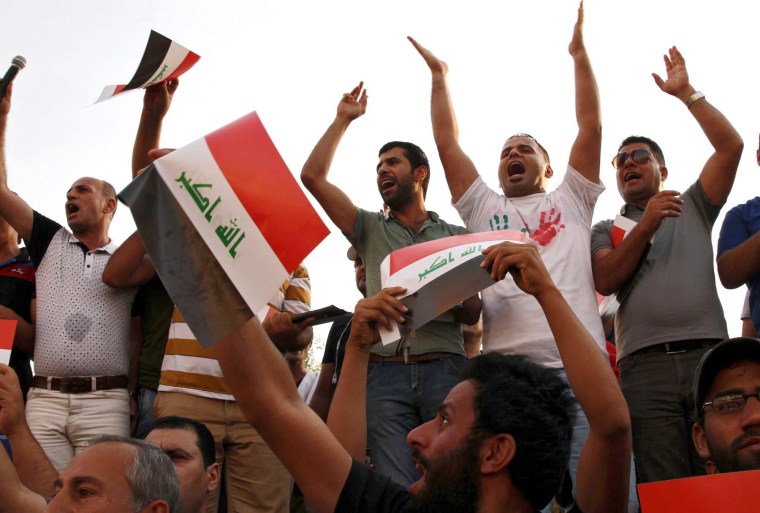BAGHDAD — Iraq's prime minister unveiled a bold plan to abolish three vice presidential posts and the offices of three deputy premiers, hoping to cut spending amid mass protests against his government.
Prime Minister Haider al-Abadi's Cabinet backed the plan, which still needs parliamentary approval, but it's unclear whether it could end the endemic corruption in Iraq's political system.

The plan also effectively would push out of government former Prime Minister Nouri al-Maliki, widely criticized for inflaming sectarian tensions and appointing loyal, less-qualified senior officers to Iraq's military ahead of ISIS's advance last year.
While al-Maliki issued a short statement approving of the proposed plan, he previously criticized al-Abadi's rise to power last year and repeatedly has urged the current government to address the country's corruption and sectarian crises.
Al-Abadi's seven-point plan would dismantle portions of the top-heavy government created in the wake of the 2003 U.S.-led invasion that toppled dictator Saddam Hussein. It would reduce spending on personal bodyguards for officials and transfer the responsibility to the interior and defense ministries. The plan also calls for the review of all corruption cases by a committee of experts, with fresh trials for officials suspected of wrongdoing.
About a thousand demonstrators gathered late Sunday in support of al-Abadi in Baghdad's Tahrir Square. Despite near-daily bombings and attacks in Baghdad, the square has been the scene of peaceful protests in recent days.
Related: Why Iraq's Fight Against ISIS Just Got a Lot Harder
The mass demonstrations even include Iraq's Shiite majority, from which the government draws most of its support, underscoring the level of anger among Iraqis in a country ranked 170 out of 175 on Transparency International's 2014 Corruption Index.
Iraq's most revered Shiite cleric, Grand Ayatollah Ali al-Sistani, had called on al-Abadi to quickly address internal issues in the government, including corruption. Through his spokesman, Ahmed al-Safi, al-Sistani urged the prime minister to strike "with an iron fist anyone who is tampering with the people's money."
Iraq, which holds the world's fifth largest oil reserves and significant amounts of gas, has struggled to finance its war against ISIS due to lower oil prices and high military spending. The consequences have manifested over al-Abadi's year in office, with the fallout ranging from worsening electricity problems to the government's failure to keep up with budget payments to the semi-autonomous Kurdish government.